- Category
- Life in Ukraine
On How the Trauma of War in Ukraine Is Etched in Women’s Bodies
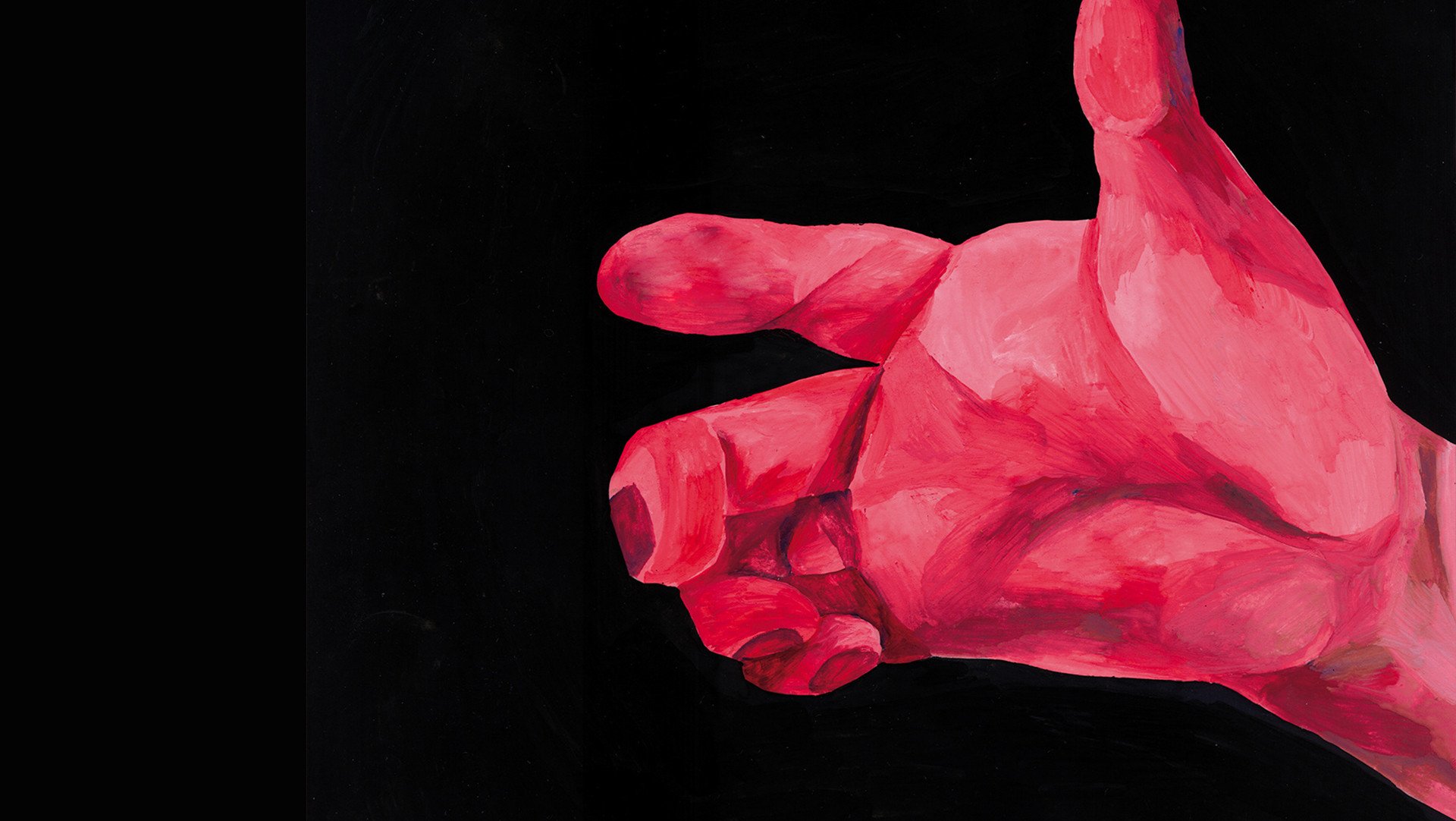
Amid the war in Ukraine, women’s bodies are keeping score to a trauma that medicine often overlooks—the physical manifestation of profound emotional distress.
In “The Myth of Normal,” Dr. Gabor Maté writes about the manifestations of trauma and about just how deeply our emotions and feelings are linked with our bodies. He argues that everything within us is synced and that modern-day medicine fails to recognize the need not just to try and tackle an illness or attempt to alleviate a symptom, but rather to treat the whole person instead. Often, suppressed and repressed emotions are manifested through the body.
This experience is too familiar for Katya, Maria, and Liza who opened up about how the mental toll of war has manifested through their bodies.
“What is the role of a woman’s menstrual cycle anyway?” Katya asks rhetorically. “At its core, it serves as a reminder of a woman’s ability to reproduce. I would like to have kids one day, but how can I, when I cannot guarantee them a safe life?”
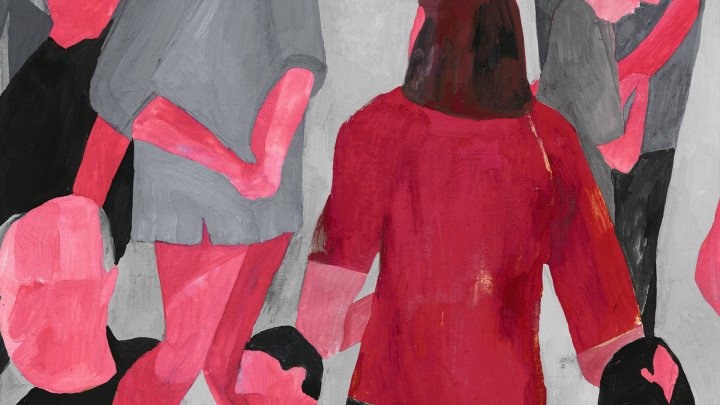
She explained that since the beginning of Russia’s full-scale invasion, she had been steadily gaining weight up until the point when she developed amenorrhea—she stopped having her period. “At first this was very shocking to me, because, on the one hand, here I was eating healthy and under the supervision of dietitians and doctors, exercising three times a week and doing everything I could to stay active, but on the other, I was constantly gaining weight,” Katya explained, “but when I took my time to look at the situation from a psychological point of view, from a point of view of what my body was actually doing, I understood it was doing what it could to try and protect me, to store as many resources within me as possible. The same way my body was trying to protect me by stopping my period.”
Hanna Kemp, a Ukrainian childbirth educator, touched on this topic during her interview “Giving Birth in a War Environment” with Christina Bogdanova. She mentioned that when it comes to pregnancy and giving birth, the biggest stressor for Ukrainian refugee women is uncertainty.
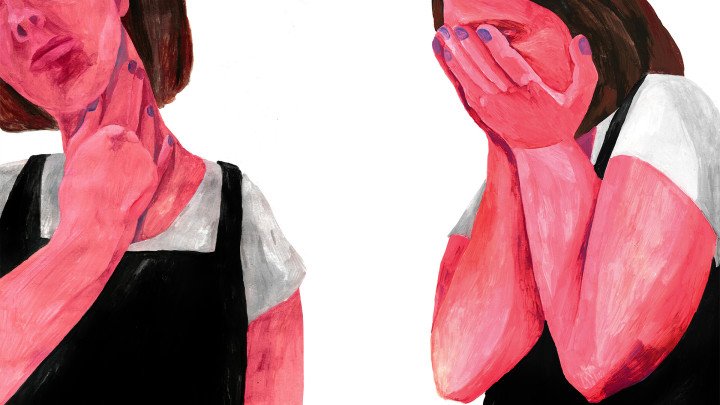
“They suffer from the turmoil of questions like: Where will I live tomorrow? What school will my children attend? Will I be able to work here tomorrow? Will my husband be alive tomorrow? Will my home be there when I go back?”, Hanna explains in her interview. How can Ukrainian women during the war feel at ease about bringing children into the world, when maternity wards are bombed, and childbirths in metro stations and basements are becoming the norm?
The Ukrainian experience, however, isn’t unique in this sense. Wars and conflicts anywhere in the world are known to influence the perinatal experiences of women greatly. Similarly, when it comes to healthcare, women already struggle to have their symptoms taken seriously, so dealing with both the war and the heavily gender-biased medical system can be especially daunting.
“My doctor, a male, when asked about what can I do about my debilitating migraines bluntly told me that I should stop thinking about the war so much,” Maria, a 47-year-old mother of two from Dnipro recalls laughing, “because who would have thought, that all I had to do was not think about the missiles I see flying outside my kitchen window on a weekly basis?”
Maria shared that she spent months trying to find a doctor, who would not try to send her home with a bag of painkillers. “Only one doctor, a young woman, asked me questions about my mental state, my day-to-day life, how I was consuming information, how I was de-stressing… She was the one who first told me that what seemed to have started in my head was now spreading to my body.”
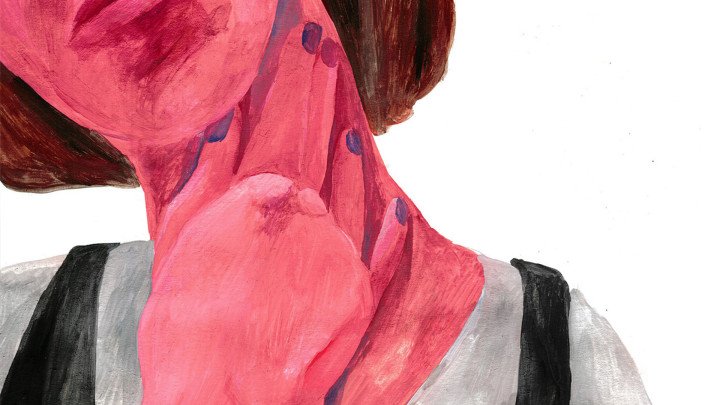
Bessel van der Kolk, a Dutch psychiatrist, author, and researcher specializing in post-traumatic stress highlights why humans oppress and/or repress their emotions and feelings, which can later manifest through their bodies, in his book “The Body Keeps the Score”. He writes: “Traumatized people chronically feel unsafe inside their bodies: the past is alive in the form of gnawing interior discomfort. Their bodies are constantly bombarded by visceral warning signs, and, in an attempt to control these processes, they often become experts at ignoring their gut feelings and numbing awareness of what is playing out inside. They learn to hide from their selves.” In fact, hiding from oneself is something Liza, a woman in her twenties from Mykolaiv, is very familiar with.
Liza takes a deep breath before sharing her story with me: of the occupation of Mykolaiv region, of Mykolaiv itself being heavily attacked in February-March 2022, of all the explosions she heard, and of the pressures she felt from being the only daughter of elderly parents. “Yeah, in hindsight, everything that happened to me happened because I was not only hiding from what was happening around me but because I was hiding from myself.”
Liza told me that together with her mom, she was meant to leave for Poland in April 2022, but they ended up delaying the trip and leaving only at the beginning of June. The reason? “I couldn’t walk”, Liza begins, “I had such excruciating pains in my lower back, that I couldn’t function. Bending was impossible, sitting was impossible, I couldn’t do anything. I was struggling to understand what was wrong with me. Doctors were looking at the results of my examinations and did not understand where the issues were coming from. On paper I was healthy, but my body was reacting to something. In the end, I got lucky, they determined that the problem was psychosomatic.”
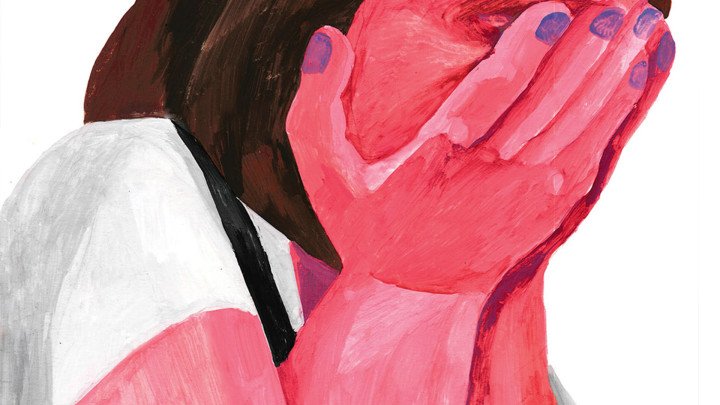
The main misconception about “psychosomatic” or “psycho-physiological” illnesses is that it is a fabrication of the mind. That it is something that happens, when the person “thinks too much” or “is bored”, but in reality, it is a manifestation of physical symptoms as a direct result of psychological or emotional factors. A 2021 nationwide cross-sectional study in Korea found that psychosocial factors, such as stress, anxiety, and depression can all influence lower back pain and even “show significant associations with the transition from acute to chronic disease”. In other words, psychosomatic pain is very much real.
“I tried to understand what my body was telling me,” Lisa explained, “and I understood that it was trying to immobilize me, to slow me down. Back then I was really worried about leaving behind my father, who refused to come to Poland with my mother and me. I was worried about how he was going to take care of himself, how he was going to be home without us when the situation around was not looking good at all. I was worried that if I left, I might not have anything to come back to.”
But her last sentence stuck with me. She summarized so well what so many women described to me about the effects of trauma on their bodies, “What I couldn’t comprehend logically or emotionally, my body comprehended for me.”
-38556bf61e11af04a17331caebf42b61.jpeg)


-6ead6a9dd508115a5d69759e48e3cad1.jpg)
-29a1a43aba23f9bb779a1ac8b98d2121.jpeg)
-7f50738271c122a9b5e663cb80703dd6.jpg)


-554f0711f15a880af68b2550a739eee4.jpg)